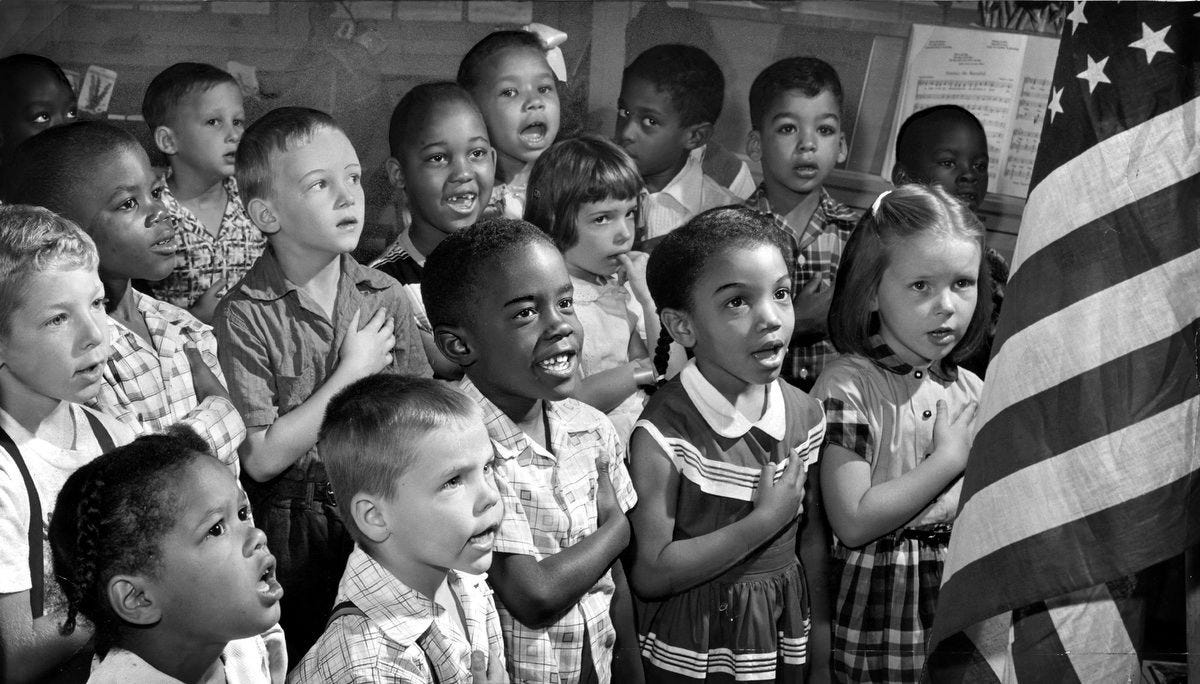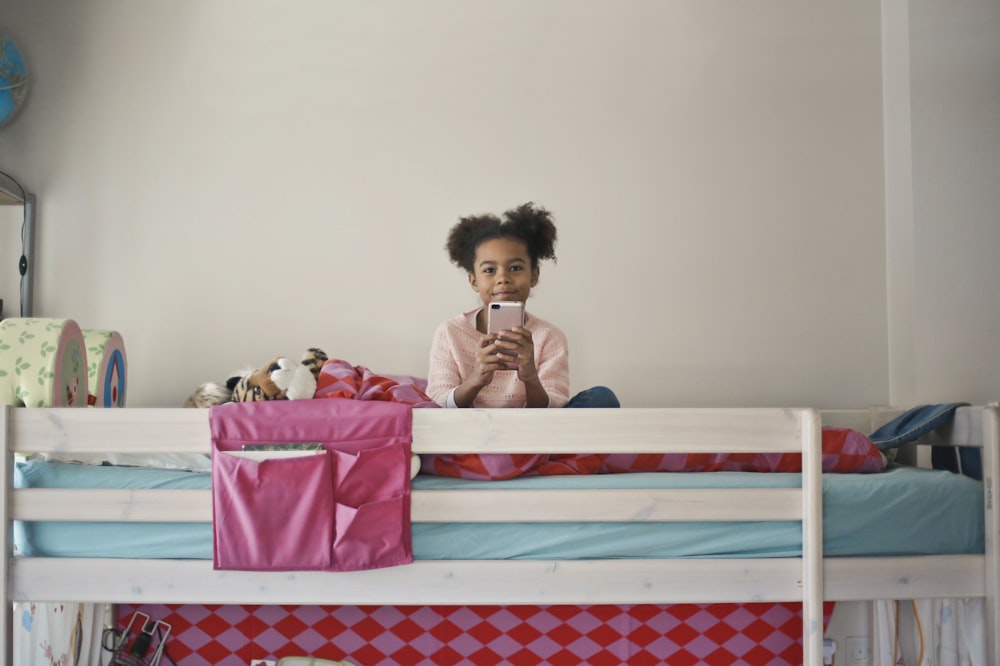Here's Why American Children Are Losing to Their Chinese Counterparts
And how chasing the ghost of perfect equality endangers our future

It was a time when you could leave the doors unlocked.
When the sidewalks rolled up at night, and the most severe crime recorded was when the paperboy delivered a late Sunday edition.
Paper person. Excuse me.
If you’re a true crime fan, you’ve heard similar introductions.
If not, you’re still familiar with the idea of “the good old days.”
Back when we made things in America, people greeted each other in public, and roving mobs didn’t clear the racks at the local Target.
But reminiscing on yesteryear is a great way to be labeled a racist.
Of course, few actually miss Jim Crow laws.
But many people don’t understand that societies don’t progress evenly within themselves or between other nations.
And most people don’t support the systemic racism of the 1950s, yet can appreciate the America First economic policies of the era.
Also, we consider the US the freest country, but we should also acknowledge when other societies outpace us.
Take China, for example.
The CCP might weld citizens in their apartments to burn alive, but in some ways, the authoritarian regime is doing a better job raising their children.
And these practices might leave future Americans in the dust.
Culture, Patriotism, and National History

I recall reciting the Pledge of Allegiance each morning in elementary school in the 90s.
Of course, the public school system stopped the practice at some point because it introduced God and patriotism simultaneously.
And we can’t have that.
Rather than misguiding kids, American schools should teach students the truth of our nation’s history, for all its faults and achievements.
Instead, they tell us the Founding Fathers were criminals, and we go home ignorant of the truth.
And that leads to societal degradation.
But in China, schools instill a sense of patriotism in daily studies.
According to China Daily, the Hong Kong Secretary for Education, Christine Choi Yuk-lin, plans to increase Chinese cultural and patriotic material by integrating more flag-raising ceremonies, teaching students about the law, national security education, and Chinese history.
Of course, that’s support for a communist regime trampling on human rights daily, but healthy patriotism in and of itself is good for growing minds.
And Xi Jinping knows this.
Study to Work Ethic

Chinese schools and families implement intense study habits with a strong focus on school, which prepares them for the vigorous work ethic in Chinese culture.
China Daily claims that students spend an average of three hours a day doing homework.
And a study from the University of Connecticut reports white kids spend 45 minutes studying on average, while Asian students, in general, spend two hours doing homework.
The disadvantage to this strong ethic led to the dreaded “996” work culture in China, where people work from 9 AM to 9 PM, six days a week.
Fortunately, a Chinese court ruled this practice illegal unless proper overtime is paid.
Even still, Chinese workers are reported to die from exhaustion.
American Processes and Chinese Results

The Chinese education system focuses on results, but we concentrate on processes in the US.
What’s important in Chinese culture is whether you know the correct answer, not how you arrive at a given conclusion.
That’s why citing sources isn’t essential for Chinese students, whereas in America, if you don’t cite sources, your teacher won’t accept the assignment.
In Chinese culture, nobody owns an answer, and there is only one truth.
If you went to school with a Chinese exchange student, you might have noticed that they froze when asked open-ended questions.
That’s because open-ended answers aren’t necessarily right or wrong, and Chinese students are accustomed to questions with only one correct answer.
Yet they would likely respond correctly if you asked them a math question, as the answer can only be right or wrong.
But the downside is that the Chinese method doesn’t promote free thought or open discussion and criticism.
Other Contributors to Learning in Chinese Culture

For Chinese students, knowledge is essential to growth, but in the US, many students find much of it useless, especially math.
Many American students ask, “when am I ever going to use the Pythagorean Theorem?” while Chinese kids only seek to memorize the calculation.
This is partly why many Chinese students excel at the subject.
Also, they aren’t allowed to use calculators between elementary and high school.
Another contributor to Chinese students’ learning ability is their shortened summer vacation.
North America and China share the same seasonal summer, but Chinese students only have a two-month break, where much time is spent preparing for the following year by hiring tutors.
Meanwhile, in the US, kids play endless hours of Call of Duty.
Many American parents could get behind this if it meant spending less on daycare and extending their kids’ knowledge.
Social Media
American kids spend countless hours on social media platforms like TikTok.
And these mindless videos misdirect young users, and adults for that matter, and alter self-perception and self-esteem.
The Chinese government, which partly owns TikTok, knows this, which is why the Chinese version, Douyin, is different.
Douyin requires that all users are confirmed with their real identity, and those under 14 are limited to using the app for 40 minutes a day.
And the app is only available between 6 AM and 10 PM.
The content accessible to kids between Douyin and TikTok also differs.
For Douyin users in “Youth Mode,” kids only see educational, athletic, or artistic material, while American users watch adult content 24 hours a day.
The Race is On

So what does all this mean?
Should we train our kids to be mindlessly devoted to their country and not question its past or current motives?
Do we force kids only to study binary subjects like math and discourage open conversations and creativity?
Or should we require kids to register their identity with the government to decide what they can or can’t see online?
Of course not.
None of this suggests we should let the government raise our children.
But American parents and schools might take a page out of the CCP book on this one.
This endless chase in our schools for a perfect society with pure equality while placing blame on each other for our past hinders our children’s growth.
The future of China, however authoritarian, has a leg up on the US and the west in general because they understand the importance of proper education, the dangers of social media, and the consequences of a lack of discipline and patriotism.
History and society are nuanced, and no culture on this planet is perfect or has a clean record.
We can only go forward.
We should cherry-pick what’s good for our country, whether it’s policies from our past or another nation’s present.
And leave the rest behind.
If we don’t start putting America First, our kids will wish for the “good old days,” when the government didn’t control every aspect of their lives because their parents let Chinese-style communism take over our nation, or worse.






Wow, what an eye-opening read! Thank you for your fabulous writing and thoughtful, educational topics :)